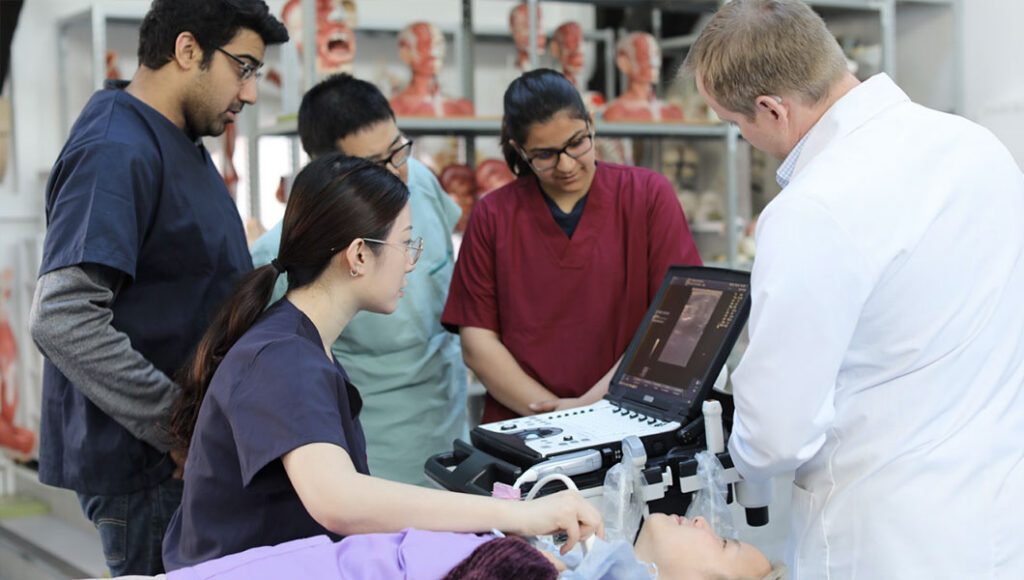Are There Scholarships for Medical School?
Medical School is expensive, but most aspiring physicians would agree that it’s still a sound investment. According to US Bureau of Labor Statistics, the average salary for a physician in 2022 was $229,300. Whether or not you plan on pursuing student loans, you may also be wondering, “Are there scholarships for medical school?”
You’ll be happy to learn that not only do medical school scholarships exist, but there is an abundance of different options out there that you may qualify for. Explore a few of these opportunities below.
Types of medical school scholarships
As with undergraduate scholarships, there are several different types of scholarship awards you may qualify for as a med student. Some opportunities will come directly from your school and others may be offered by external organizations — but you can expect all of them to have specific criteria you’ll need to meet to be considered eligible.
Most scholarships for medical school fall into one of the following three categories:
- Institutional scholarshipsThe first place you should look when searching for med school scholarships is within the institution you’ll be attending. Many MD programs offer a host of different scholarship and grant opportunities to current and incoming students.Students at the School of Medicine at St. George’s University (SGU), for instance, have numerous different awards they might qualify for.Some examples include:
- The CityDoctors Scholarship Program is offered in partnership with NYC Health & Hospitals to provide full- and partial-tuition awards to SGU students who are committed to serving in urban hospitals around New York City.
- The Equity in Medicine Scholar Program offers competitive partial-tuition awards to new incoming students hailing from medically underserved areas in the US.
- The Humanitarian Scholarship is a partial-tuition award offered to incoming SGU students who have demonstrated compassion and commitment to humanitarian causes in their local communities.
- The Health Professions Grant is a partial-tuition award available to SGU students who are currently or have been employed in the healthcare field in the past two years.
Most medical schools will highlight their institutional scholarship and grant offerings right on their websites. You can find SGU’s full suite of award opportunities on the school’s Scholarships and Awards page.
- Federal commitment-based scholarships & loan forgiveness programsIn light of the mounting physician shortage in the US, there has been an increase in commitment-based scholarships and loan forgiveness programs facilitated by the federal government. These are awards offered to medical students who commit to work in a certain location or within a specific scope of practice once they become licensed to practice.One example of this is the Health Professions Scholarship Program (HPSP), which offers med students a full-tuition scholarship in addition to a monthly stipend in exchange for a specified term of commitment to a branch of the US Armed Forces.
- External medical school scholarshipsIn addition to the institutional and federal awards you’ll come across, you can find a range of general medical school scholarships offered by external organizations. The eligibility criteria for many of these, however, can be a bit more specific.Consider a couple examples:
- Scholarships for BIPOC students are available specifically to applicants who are Black, Indigenous, and People of Color pursuing their MDs. A number of these opportunities are offered by the Physicians of Tomorrow Scholarship Program, the Association of American Medical Colleges (AAMC), the National Medical Fellowships, and other organizations.
- Scholarships for women in medicine are available specifically to women pursuing their MDs. Such opportunities can be found through the American Medical Association (AMA), the Daughters of the American Revolution Foundation, the Zeta Phi Beta Sorority National Educational Foundation, and other organizations.
You might also find opportunities available to students living in specific regional areas, low-income students, those already working in a healthcare profession, or other categories that may apply to you. It’s certainly worth doing some research to determine which non-institutional, non-federal scholarship opportunities you might qualify for – just make sure they are eligible for the particular medical school you are attending.
Plan how you’ll pay for medical school
The journey to becoming a physician requires hard work and a sizable monetary commitment. Now that you know more about the medical school scholarship opportunities available to you, it should be clear there are some avenues for financial support.
For additional information and guidance on financing your medical school education, check out our other articles:
- How to Pay for Medical School: Doctors Share How They Did It
- Understanding Student Loans for Medical School
- Advice for Paying Off Medical School Loans
- SGU Alumni Share What Paying for Medical School Is Really Like
- A Closer Look at the Cost of Medical School: 8 Non-Tuition Expenses
- 8 Questions Future MD Students Should Ask Medical School Financial Aid Officers

